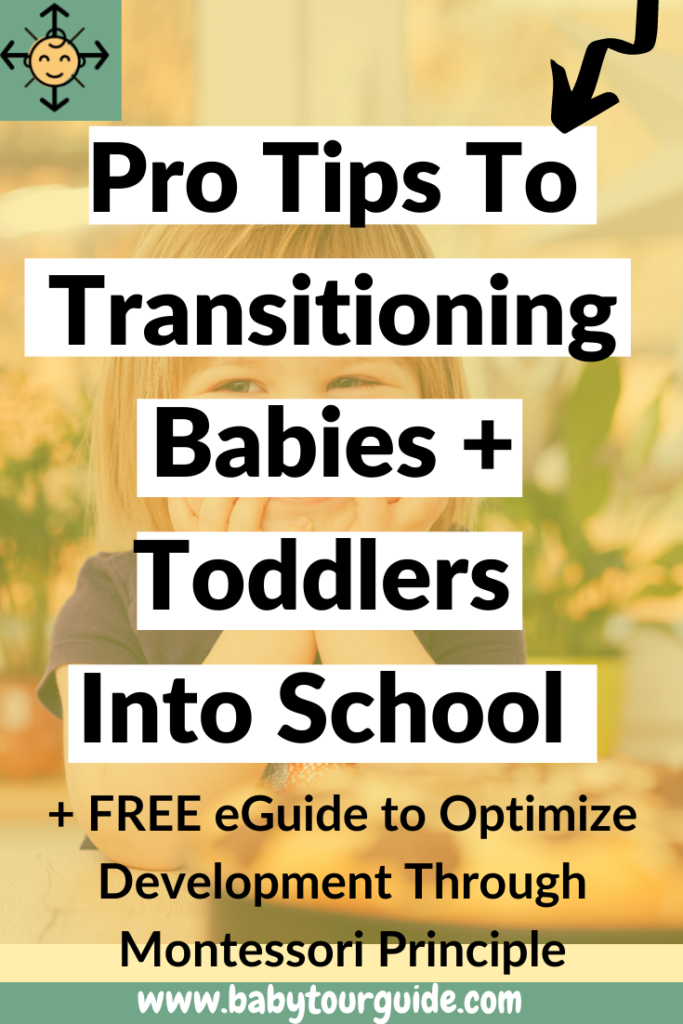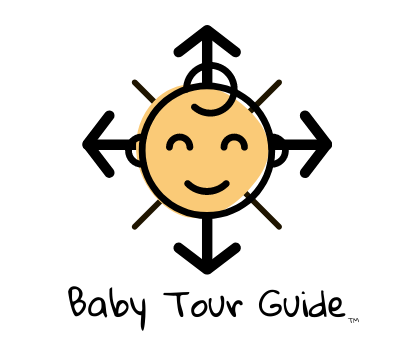5 Most Helpful Transitioning Baby Into Care Tips
The transition of your baby into daycare, school, or nanny care can be an emotional process… but I am so happy to tell you guys that I have a lot of information that could really help ease your family’s transition!! My experience in this field has allowed me to have transitioned hundreds of families with babies into care over the years, and in that time I have learned so many tips that have helped lots of parents and babies and can now help you too!
Now here is the truth about transitioning babies into care…
If your child is above 6 months, or stranger anxiety has already set in, most likely they will cry during their initial transition. This is perfectly normal. They are communicating to us! Our babies cry because they find a sense of security in their routines, so switching up what they have known can be quite confusing.
Also, they recognize that their new caregiver is someone they do not recognize and it takes a little bit of time for your baby to learn to trust their caregiver. The good news is they all do! Once they acclimate to their new routine, environment, and caregiver(s), they will find a sense of security in that new routine.
How long do these transitions take?!
Honestly, the transition process can take anywhere from 2 weeks to 2 months, depending on the child’s development, temperament, and consistency of their new routine. So the more you trust their new situation and let them know that, the quicker they will transition!
Sometimes they don’t cry!
If your child has been frequently exposed to extended family, taken mommy and me classes with other children, been in a childcare before, or are just extremely friendly, they may not cry! It truly just depends on wherever they are at in their development combined with their innate personality.

Check out these 5 tips to ensure that your child has a beautiful transition
1. Prepare Yourself and Your Baby
Handing over your baby to someone else’s care can be such an emotional process. And it is perfectly normal and okay for you to be emotional as this transition approaches! That being said, as the transition approaches, remind yourself about why you are doing it. Perhaps you are passionate about your profession and are ready to balance life as a working parent? Perhaps you want your baby learn how to interact with other children? Perhaps you strongly believe in the Pedagogy of the program you chose? Whatever the reason, you wouldn’t even be considering care for your baby if it wasn’t a good one. Keep reminding yourself of that reason!
Also, start talking to your baby about the transition! Let them know that they are going to have a fun new adventure, a new caregiver, new friends, or whatever their experience will entail! Start to show them their school bag and school clothes! Give them the security that you are confident in your decision, even if you are nervous about how the transition will go. You’ve got this!
2. Get To Know Your Caregiver (Or School) Before the Transition
Giving yourself and your partner the opportunity to get to know the situation you are going to put your baby in before you start will help you trust the situation as you transition in. So ask lots of questions! Get to know the teacher or nanny! They are there to help ease the transition, so ask as many questions you can think of!
Also, before your child is due to start, give your baby an opportunity to see you positively interacting with their new nanny or teacher. Most schools and programs will have either a “Home Visit” where the child can see their new teacher before they start, or a “Start Process” where you can take your baby to visit their new class and teacher before their start date. If you are choosing to transition into Nanny Care, give yourself an hour to sit with your child and nanny. Let your child see you two positively communicating!

3. Make It A Positive Energy Experience
That day has now approached where you will now be leaving your baby in someone else’s care! And it can be very emotional! Even if your nerves have taken over, you have a ball in your throat, and are very anxious about how this day will go, try your very best to focus on that positive reason why you chose this for your baby and hold it together at least until that initial drop off is over. Most of the time, as soon as you hand your baby to their new caregiver, they will cry. Keep reminding yourself that this is a perfectly normal part of the transition process. If your child sees you anxious, it will feed their anxiety. Whereas if they see you confident and happy, even if they are crying, they get to see the person that they trust most being confident about their new situation!
And once you leave, of course feel all those intense feelings! This is a huge step for both you and your baby!!
4. Make That Initial Separation As Quick As Possible And Always Say Bye
Here is one of my biggest rules of thumb about transitioning babies into care:
The longer the initial separation, the longer your child will cry.
Every bit of you is going to want to sit and get your child acclimated and make sure that they stop crying before you leave them. This is a perfectly normal feeling! But the longer you stay, the harder the separation will be for your baby, and the longer they will cry. This concept has been proven over and over to me. That being said, allow your baby’s new caregiver to sooth your baby! This gives your sweet infant a perfect opportunity to start developing a sense of trust with their new situation.
A very common question by parents is whether or not to sneak out so the child doesn’t see them leave or cry during the separation. But I assure you this is approach will more likely than not prolong the transition. While in that moment you may not see them cry, as soon as they notice you are gone they will. That gives them a huge sense of insecurity in not knowing when to expect you to randomly leave. This can not only prolong the transition into care, but it can also create a strong separation situation at home as well. Saying bye lets them know that you are leaving and gives them that security in knowing that you will always come back.
Usually I recommend saying something along the lines of, “Bye *Insert Baby’s Name*! I love you so much! Have a great day! I am very excited for you. And I always come back! I will see you later!”

5. Be Consistent
Make sure that your child’s new routine is consistent! Like I mentioned before, babies trust and thrive off of the consistency of their routines. If you only need care a couple days a week, try to ensure that these days are consecutive, so we aren’t throwing their routines off consistently. The more consistent we are, the quicker they will adjust to their new routine!
Also, if you chose a school with a specific developmental approach (like Montessori, Reggio-Emilia, Nature Based etc.) try to learn as much about their approach and be consistent with it at home. Ask them about their means of “discipline”, what type of language they use, etc. Since children thrive off of consistency, if their home and school life is as fluid as possible, they will have a much better chance of trusting their new situation more quickly!
Again, some infants may not cry at all! These tips are just so you have as much support and info to ensure that the transition is as smooth as possible. You’ve got this fearless parents!!
Xoxo,
Bianca, Your Baby Tour Guide
